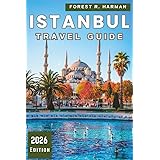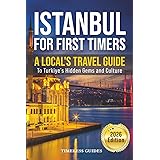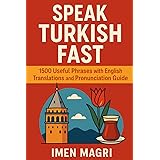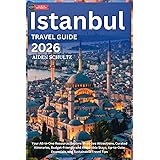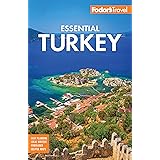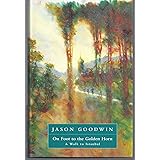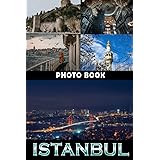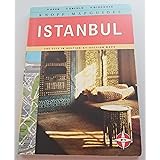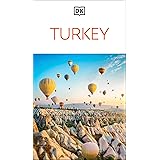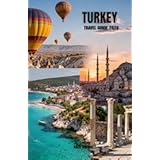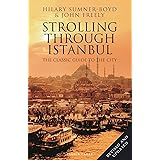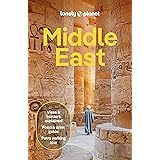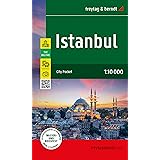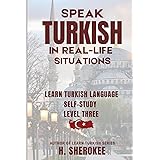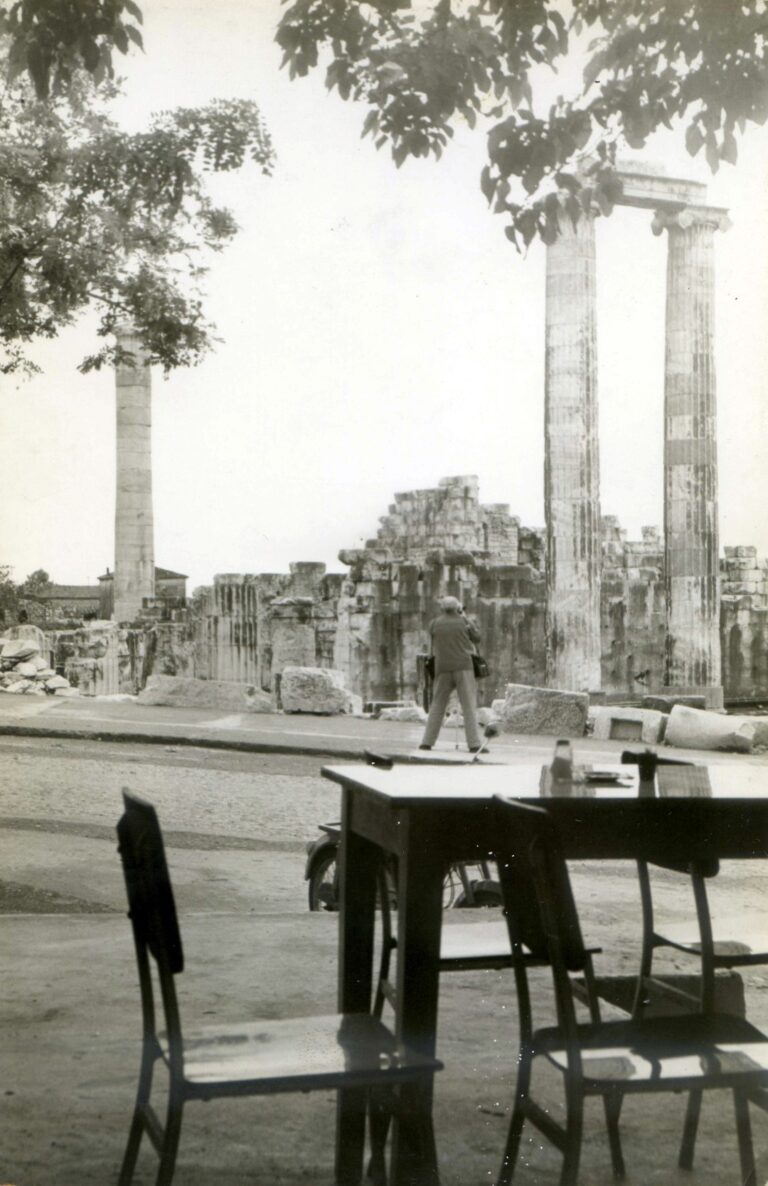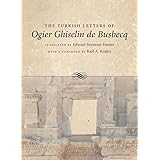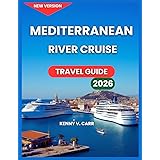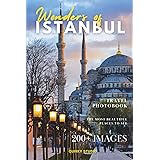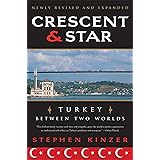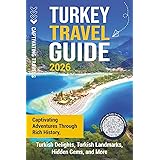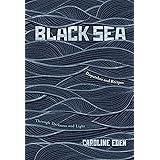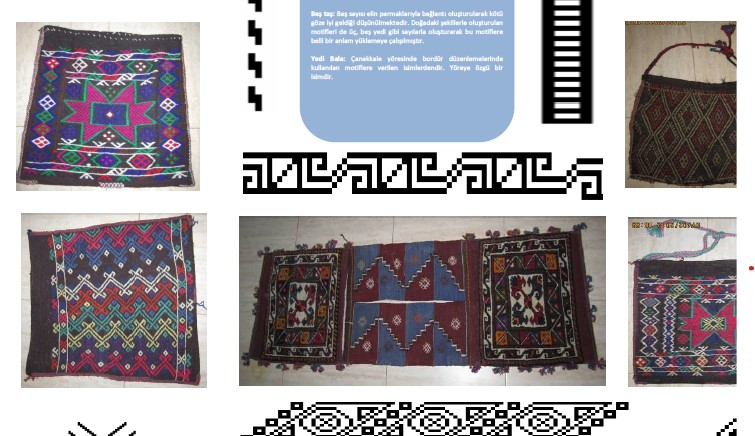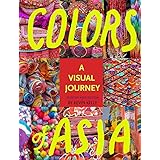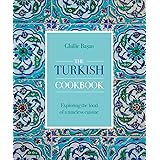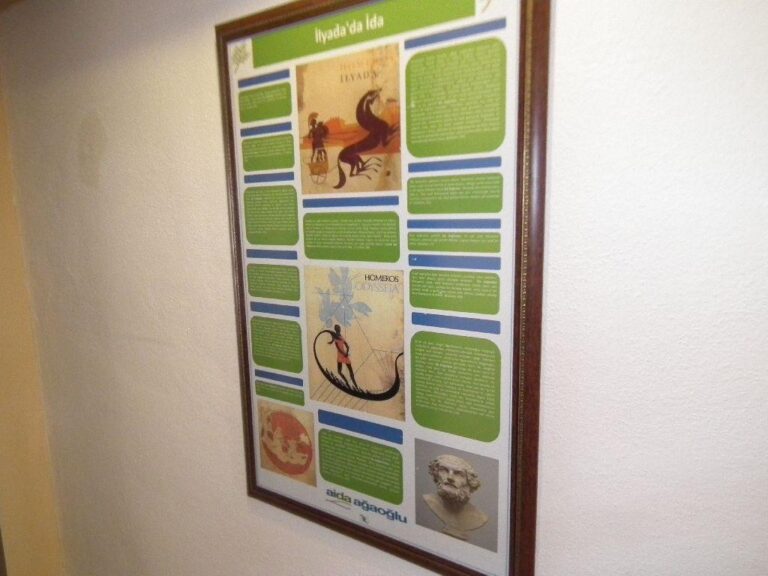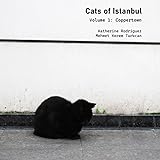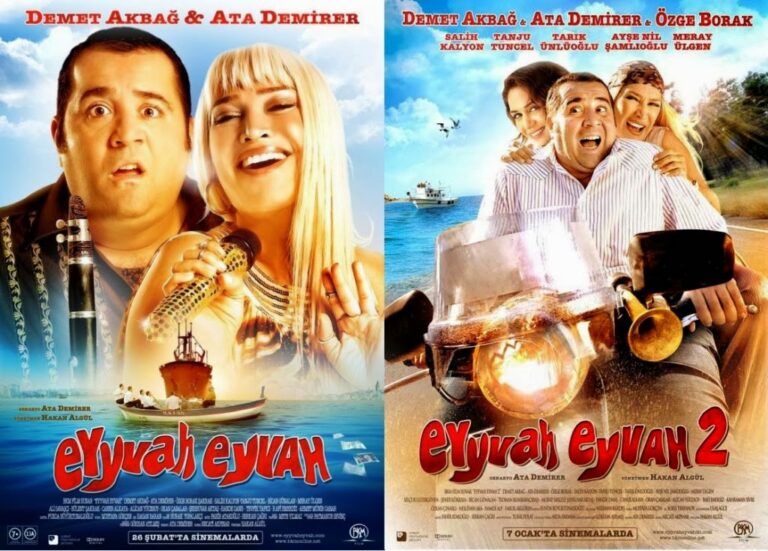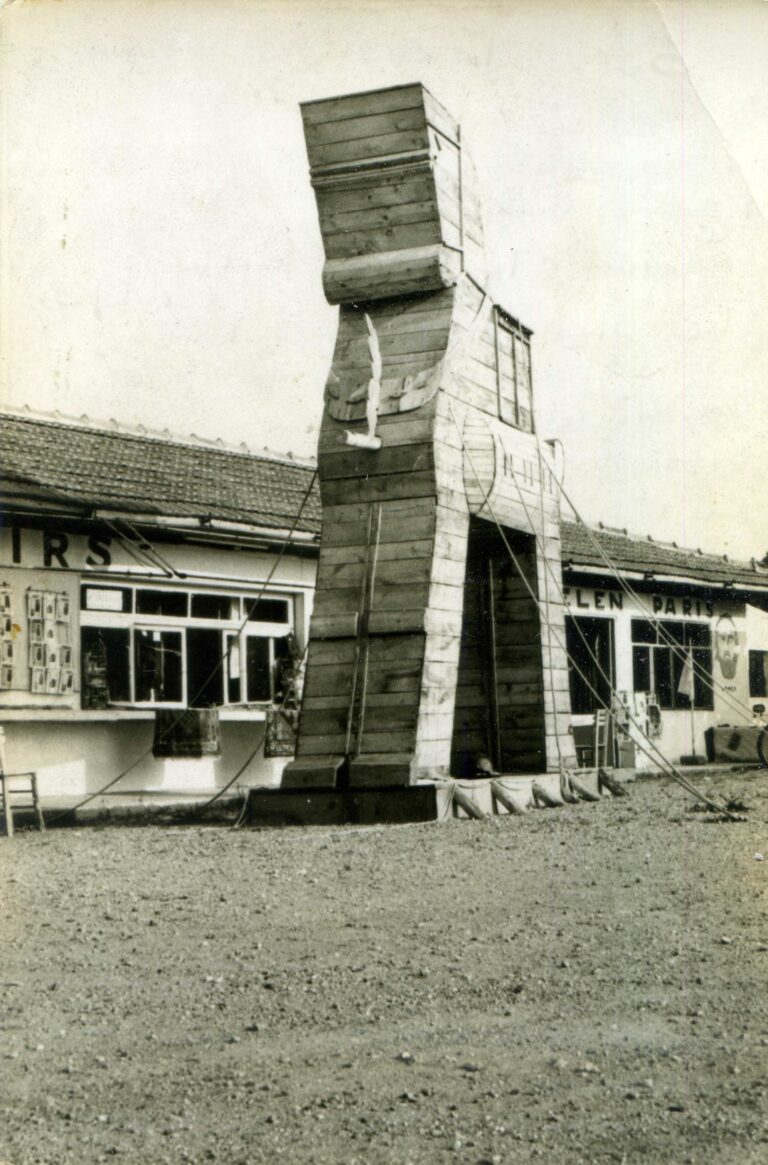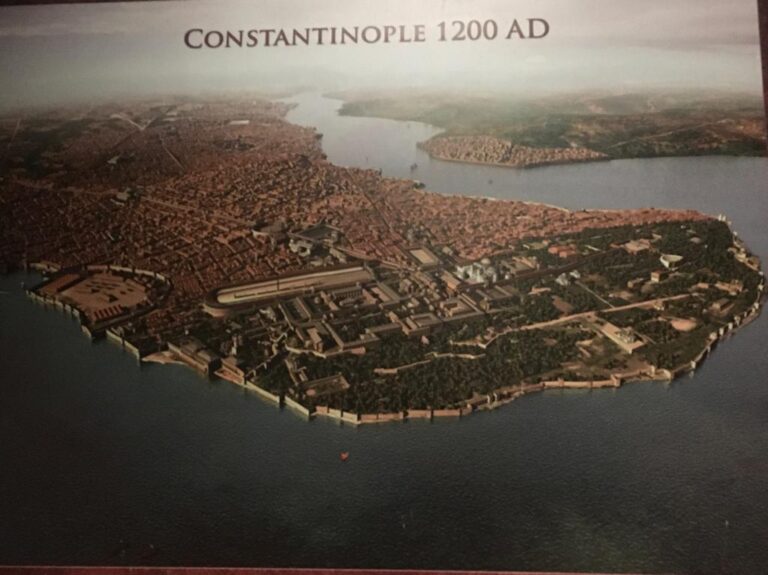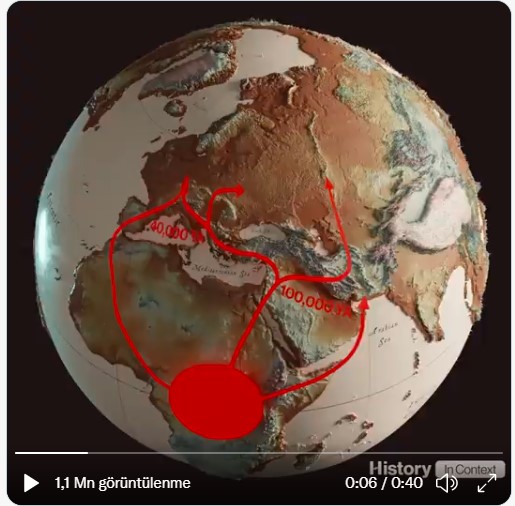North Aegean, Turkey and Around












Istanbul For First Timers: A Local's Travel Guide To Turkiye's Hidden Gems and Culture
$17.99 (as of 27/02/2026 22:28 GMT +03:00 - More infoProduct prices and availability are accurate as of the date/time indicated and are subject to change. Any price and availability information displayed on [relevant Amazon Site(s), as applicable] at the time of purchase will apply to the purchase of this product.)To the City: Life and Death Along the Ancient Walls of Istanbul
$1.92 (as of 27/02/2026 22:28 GMT +03:00 - More infoProduct prices and availability are accurate as of the date/time indicated and are subject to change. Any price and availability information displayed on [relevant Amazon Site(s), as applicable] at the time of purchase will apply to the purchase of this product.)Rick Steves Istanbul: With Ephesus & Cappadocia
$15.22 (as of 27/02/2026 22:28 GMT +03:00 - More infoProduct prices and availability are accurate as of the date/time indicated and are subject to change. Any price and availability information displayed on [relevant Amazon Site(s), as applicable] at the time of purchase will apply to the purchase of this product.)Knopf MapGuide: Istanbul
$5.60 (as of 27/02/2026 22:28 GMT +03:00 - More infoProduct prices and availability are accurate as of the date/time indicated and are subject to change. Any price and availability information displayed on [relevant Amazon Site(s), as applicable] at the time of purchase will apply to the purchase of this product.)DK Turkey: Must-See Sights. Culture & History. Detailed Maps & Tours. Covers Istanbul, Cappadocia, Antalya, Bod (Travel Guide)
$29.99 (as of 27/02/2026 22:28 GMT +03:00 - More infoProduct prices and availability are accurate as of the date/time indicated and are subject to change. Any price and availability information displayed on [relevant Amazon Site(s), as applicable] at the time of purchase will apply to the purchase of this product.)ISTANBUL TRAVEL GUIDE 2026: Walk Like a Local with Neighborhood Insights, Food Culture, Ferries, Hidden Corners, and Smart Itineraries (Local Insight Travel Guides)
$23.99 (as of 27/02/2026 22:28 GMT +03:00 - More infoProduct prices and availability are accurate as of the date/time indicated and are subject to change. Any price and availability information displayed on [relevant Amazon Site(s), as applicable] at the time of purchase will apply to the purchase of this product.)Rick Steves Istanbul
$2.05 (as of 27/02/2026 22:28 GMT +03:00 - More infoProduct prices and availability are accurate as of the date/time indicated and are subject to change. Any price and availability information displayed on [relevant Amazon Site(s), as applicable] at the time of purchase will apply to the purchase of this product.)The History of Istanbul: From Byzantion to Modern Times (History of Turkey Books)
$15.99 (as of 27/02/2026 22:28 GMT +03:00 - More infoProduct prices and availability are accurate as of the date/time indicated and are subject to change. Any price and availability information displayed on [relevant Amazon Site(s), as applicable] at the time of purchase will apply to the purchase of this product.)Lonely Planet Pocket Istanbul (Pocket Guide)
$12.00 (as of 27/02/2026 22:28 GMT +03:00 - More infoProduct prices and availability are accurate as of the date/time indicated and are subject to change. Any price and availability information displayed on [relevant Amazon Site(s), as applicable] at the time of purchase will apply to the purchase of this product.)Turkey Travel Guide 2026: Complete Companion for Istanbul, Cappadocia, Ephesus, and Antalya with Cultural Etiquette, Archaeological Sites, Budget Strategies, Transportation Options, and Turkish Exper
$7.99 (as of 27/02/2026 22:28 GMT +03:00 - More infoProduct prices and availability are accurate as of the date/time indicated and are subject to change. Any price and availability information displayed on [relevant Amazon Site(s), as applicable] at the time of purchase will apply to the purchase of this product.)Strolling Through Istanbul: The Classic Guide to the City
$20.39 (as of 27/02/2026 22:28 GMT +03:00 - More infoProduct prices and availability are accurate as of the date/time indicated and are subject to change. Any price and availability information displayed on [relevant Amazon Site(s), as applicable] at the time of purchase will apply to the purchase of this product.)Lonely Planet Pocket Istanbul (Pocket Guide)
$12.00 (as of 27/02/2026 22:28 GMT +03:00 - More infoProduct prices and availability are accurate as of the date/time indicated and are subject to change. Any price and availability information displayed on [relevant Amazon Site(s), as applicable] at the time of purchase will apply to the purchase of this product.)The Turkish Cookbook
$36.48 (as of 27/02/2026 22:28 GMT +03:00 - More infoProduct prices and availability are accurate as of the date/time indicated and are subject to change. Any price and availability information displayed on [relevant Amazon Site(s), as applicable] at the time of purchase will apply to the purchase of this product.)Lonely Planet Middle East (Travel Guide)
$11.60 (as of 27/02/2026 22:28 GMT +03:00 - More infoProduct prices and availability are accurate as of the date/time indicated and are subject to change. Any price and availability information displayed on [relevant Amazon Site(s), as applicable] at the time of purchase will apply to the purchase of this product.)Istanbul, City map 1:10.000, City Pocket map + The Big Five
$13.15 (as of 27/02/2026 22:28 GMT +03:00 - More infoProduct prices and availability are accurate as of the date/time indicated and are subject to change. Any price and availability information displayed on [relevant Amazon Site(s), as applicable] at the time of purchase will apply to the purchase of this product.)Speak Turkish in Real-Life Situations Learn Turkish Level Three: Confidently Learn Turkish The Perfect Guide for Travelers, EMIGRANT, Expats, and ... Series (Mastering Turkish: Step by Step))
$17.99 (as of 27/02/2026 22:28 GMT +03:00 - More infoProduct prices and availability are accurate as of the date/time indicated and are subject to change. Any price and availability information displayed on [relevant Amazon Site(s), as applicable] at the time of purchase will apply to the purchase of this product.)Lonely Planet Turkiye (Travel Guide)
$19.95 (as of 27/02/2026 22:28 GMT +03:00 - More infoProduct prices and availability are accurate as of the date/time indicated and are subject to change. Any price and availability information displayed on [relevant Amazon Site(s), as applicable] at the time of purchase will apply to the purchase of this product.)DK Top 10 Istanbul: Top 10 lists for your perfect trip, plus an all-weather folded map (Pocket Travel Guide)
$11.40 (as of 27/02/2026 22:28 GMT +03:00 - More infoProduct prices and availability are accurate as of the date/time indicated and are subject to change. Any price and availability information displayed on [relevant Amazon Site(s), as applicable] at the time of purchase will apply to the purchase of this product.)DK Eyewitness Travel Guide Turkey (Eyewitness Travel Guides)
$12.11 (as of 27/02/2026 22:28 GMT +03:00 - More infoProduct prices and availability are accurate as of the date/time indicated and are subject to change. Any price and availability information displayed on [relevant Amazon Site(s), as applicable] at the time of purchase will apply to the purchase of this product.)DK Top 10 Istanbul (Pocket Travel Guide)
$2.67 (as of 27/02/2026 22:28 GMT +03:00 - More infoProduct prices and availability are accurate as of the date/time indicated and are subject to change. Any price and availability information displayed on [relevant Amazon Site(s), as applicable] at the time of purchase will apply to the purchase of this product.)Anatolian Civilisations
DK Eyewitness Istanbul (Travel Guide)
$9.48 (as of 27/02/2026 22:28 GMT +03:00 - More infoProduct prices and availability are accurate as of the date/time indicated and are subject to change. Any price and availability information displayed on [relevant Amazon Site(s), as applicable] at the time of purchase will apply to the purchase of this product.)The History of Istanbul: From Byzantion to Modern Times (History of Turkey Books)
$15.99 (as of 27/02/2026 22:28 GMT +03:00 - More infoProduct prices and availability are accurate as of the date/time indicated and are subject to change. Any price and availability information displayed on [relevant Amazon Site(s), as applicable] at the time of purchase will apply to the purchase of this product.)Rick Steves Istanbul
$2.05 (as of 27/02/2026 22:28 GMT +03:00 - More infoProduct prices and availability are accurate as of the date/time indicated and are subject to change. Any price and availability information displayed on [relevant Amazon Site(s), as applicable] at the time of purchase will apply to the purchase of this product.)Istanbul, City map 1:10.000, City Pocket map + The Big Five
$13.15 (as of 27/02/2026 22:28 GMT +03:00 - More infoProduct prices and availability are accurate as of the date/time indicated and are subject to change. Any price and availability information displayed on [relevant Amazon Site(s), as applicable] at the time of purchase will apply to the purchase of this product.)Knopf MapGuide: Istanbul
$5.60 (as of 27/02/2026 22:28 GMT +03:00 - More infoProduct prices and availability are accurate as of the date/time indicated and are subject to change. Any price and availability information displayed on [relevant Amazon Site(s), as applicable] at the time of purchase will apply to the purchase of this product.)Istanbul Travel Guide 2026: Your All-in-One Resource: Explore Must-See Attractions, Curated Itineraries, Budget-Friendly and Accessible Stays, Up-to-Date Essentials, and Sustainable Travel Tips
$15.99 (as of 27/02/2026 22:28 GMT +03:00 - More infoProduct prices and availability are accurate as of the date/time indicated and are subject to change. Any price and availability information displayed on [relevant Amazon Site(s), as applicable] at the time of purchase will apply to the purchase of this product.)The Turkish Cookbook
$36.48 (as of 27/02/2026 22:28 GMT +03:00 - More infoProduct prices and availability are accurate as of the date/time indicated and are subject to change. Any price and availability information displayed on [relevant Amazon Site(s), as applicable] at the time of purchase will apply to the purchase of this product.)DK Turkey: Must-See Sights. Culture & History. Detailed Maps & Tours. Covers Istanbul, Cappadocia, Antalya, Bod (Travel Guide)
$29.99 (as of 27/02/2026 22:28 GMT +03:00 - More infoProduct prices and availability are accurate as of the date/time indicated and are subject to change. Any price and availability information displayed on [relevant Amazon Site(s), as applicable] at the time of purchase will apply to the purchase of this product.)Speak Turkish Fast: 1500 Useful Phrases with English Translations and Pronunciation Guide
$19.64 (as of 27/02/2026 22:28 GMT +03:00 - More infoProduct prices and availability are accurate as of the date/time indicated and are subject to change. Any price and availability information displayed on [relevant Amazon Site(s), as applicable] at the time of purchase will apply to the purchase of this product.)Turkey Travel Guide 2026: Complete Companion for Istanbul, Cappadocia, Ephesus, and Antalya with Cultural Etiquette, Archaeological Sites, Budget Strategies, Transportation Options, and Turkish Exper
$7.99 (as of 27/02/2026 22:28 GMT +03:00 - More infoProduct prices and availability are accurate as of the date/time indicated and are subject to change. Any price and availability information displayed on [relevant Amazon Site(s), as applicable] at the time of purchase will apply to the purchase of this product.)Istanbul, City map 1:10.000, City Pocket map + The Big Five
$13.15 (as of 27/02/2026 22:28 GMT +03:00 - More infoProduct prices and availability are accurate as of the date/time indicated and are subject to change. Any price and availability information displayed on [relevant Amazon Site(s), as applicable] at the time of purchase will apply to the purchase of this product.)Lonely Planet Turkiye (Travel Guide)
$19.95 (as of 27/02/2026 22:28 GMT +03:00 - More infoProduct prices and availability are accurate as of the date/time indicated and are subject to change. Any price and availability information displayed on [relevant Amazon Site(s), as applicable] at the time of purchase will apply to the purchase of this product.)The Turkish Letters of Ogier Ghiselin de Busbecq
$7.38 (as of 27/02/2026 22:28 GMT +03:00 - More infoProduct prices and availability are accurate as of the date/time indicated and are subject to change. Any price and availability information displayed on [relevant Amazon Site(s), as applicable] at the time of purchase will apply to the purchase of this product.)The Christian Traveler's Guide to the Holy Land
$14.99 (as of 27/02/2026 22:28 GMT +03:00 - More infoProduct prices and availability are accurate as of the date/time indicated and are subject to change. Any price and availability information displayed on [relevant Amazon Site(s), as applicable] at the time of purchase will apply to the purchase of this product.)Mediterranean Cruise Port Travel Guide 2026: Harbor Views, Top Attractions, Things To Do At Every Stop In Spain, France, Italy, Greece, Turkey, ... the Waterfront. (Locals Travel Experience)
$13.99 (as of 27/02/2026 22:28 GMT +03:00 - More infoProduct prices and availability are accurate as of the date/time indicated and are subject to change. Any price and availability information displayed on [relevant Amazon Site(s), as applicable] at the time of purchase will apply to the purchase of this product.)Lonely Planet Middle East (Travel Guide)
$11.60 (as of 27/02/2026 22:28 GMT +03:00 - More infoProduct prices and availability are accurate as of the date/time indicated and are subject to change. Any price and availability information displayed on [relevant Amazon Site(s), as applicable] at the time of purchase will apply to the purchase of this product.)Istanbul: City of Majesty at the Crossroads of the World
$4.00 (as of 27/02/2026 22:28 GMT +03:00 - More infoProduct prices and availability are accurate as of the date/time indicated and are subject to change. Any price and availability information displayed on [relevant Amazon Site(s), as applicable] at the time of purchase will apply to the purchase of this product.)The Turkish Cookbook
$36.48 (as of 27/02/2026 22:28 GMT +03:00 - More infoProduct prices and availability are accurate as of the date/time indicated and are subject to change. Any price and availability information displayed on [relevant Amazon Site(s), as applicable] at the time of purchase will apply to the purchase of this product.)DK Top 10 Istanbul (Pocket Travel Guide)
$2.67 (as of 27/02/2026 22:28 GMT +03:00 - More infoProduct prices and availability are accurate as of the date/time indicated and are subject to change. Any price and availability information displayed on [relevant Amazon Site(s), as applicable] at the time of purchase will apply to the purchase of this product.)The Amazing Mrs. Pollifax (Mrs. Pollifax Series Book 2)
$5.99 (as of 27/02/2026 22:28 GMT +03:00 - More infoProduct prices and availability are accurate as of the date/time indicated and are subject to change. Any price and availability information displayed on [relevant Amazon Site(s), as applicable] at the time of purchase will apply to the purchase of this product.)Rivers of Mount Ida, Dardanelles Çanakkale
İDA’NIN PINARLARI DERELERİ ÇAYLARI
ISTANBUL TRAVEL GUIDE 2026: Walk Like a Local with Neighborhood Insights, Food Culture, Ferries, Hidden Corners, and Smart Itineraries (Local Insight Travel Guides)
$23.99 (as of 27/02/2026 22:28 GMT +03:00 - More infoProduct prices and availability are accurate as of the date/time indicated and are subject to change. Any price and availability information displayed on [relevant Amazon Site(s), as applicable] at the time of purchase will apply to the purchase of this product.)DK Eyewitness Travel Guide Istanbul (Eyewitness Travel Guides)
$16.36 (as of 27/02/2026 22:28 GMT +03:00 - More infoProduct prices and availability are accurate as of the date/time indicated and are subject to change. Any price and availability information displayed on [relevant Amazon Site(s), as applicable] at the time of purchase will apply to the purchase of this product.)Wonders of Istanbul: A Photo Collection of the City’s Most Beautiful Places to See – A Stunning Coffee Table Travel Photobook
$12.99 (as of 27/02/2026 22:28 GMT +03:00 - More infoProduct prices and availability are accurate as of the date/time indicated and are subject to change. Any price and availability information displayed on [relevant Amazon Site(s), as applicable] at the time of purchase will apply to the purchase of this product.)The Rough Guide to Turkey (Travel Guide with eBook) (Rough Guide Main Series)
$13.06 (as of 27/02/2026 22:28 GMT +03:00 - More infoProduct prices and availability are accurate as of the date/time indicated and are subject to change. Any price and availability information displayed on [relevant Amazon Site(s), as applicable] at the time of purchase will apply to the purchase of this product.)Rick Steves Istanbul: With Ephesus & Cappadocia
$3.38 (as of 27/02/2026 22:28 GMT +03:00 - More infoProduct prices and availability are accurate as of the date/time indicated and are subject to change. Any price and availability information displayed on [relevant Amazon Site(s), as applicable] at the time of purchase will apply to the purchase of this product.)Rick Steves Istanbul
$2.05 (as of 27/02/2026 22:28 GMT +03:00 - More infoProduct prices and availability are accurate as of the date/time indicated and are subject to change. Any price and availability information displayed on [relevant Amazon Site(s), as applicable] at the time of purchase will apply to the purchase of this product.)Istanbul Travel Guide: How to Plan a Trip to Istanbul with Best Tips for First-Timers (Journey Joy)
$14.22 (as of 27/02/2026 22:28 GMT +03:00 - More infoProduct prices and availability are accurate as of the date/time indicated and are subject to change. Any price and availability information displayed on [relevant Amazon Site(s), as applicable] at the time of purchase will apply to the purchase of this product.)Crescent and Star: Turkey Between Two Worlds
$6.49 (as of 27/02/2026 22:28 GMT +03:00 - More infoProduct prices and availability are accurate as of the date/time indicated and are subject to change. Any price and availability information displayed on [relevant Amazon Site(s), as applicable] at the time of purchase will apply to the purchase of this product.)Istanbul & Northwest Turkey Travel Reference Map WP
$9.89 (as of 27/02/2026 22:28 GMT +03:00 - More infoProduct prices and availability are accurate as of the date/time indicated and are subject to change. Any price and availability information displayed on [relevant Amazon Site(s), as applicable] at the time of purchase will apply to the purchase of this product.)The History of Istanbul: From Byzantion to Modern Times (History of Turkey Books)
$15.99 (as of 27/02/2026 22:28 GMT +03:00 - More infoProduct prices and availability are accurate as of the date/time indicated and are subject to change. Any price and availability information displayed on [relevant Amazon Site(s), as applicable] at the time of purchase will apply to the purchase of this product.)Istanbul, City map 1:10.000, City Pocket map + The Big Five
$13.15 (as of 27/02/2026 22:28 GMT +03:00 - More infoProduct prices and availability are accurate as of the date/time indicated and are subject to change. Any price and availability information displayed on [relevant Amazon Site(s), as applicable] at the time of purchase will apply to the purchase of this product.)Istanbul: Memories and the City (Vintage International)
$20.00 (as of 27/02/2026 22:28 GMT +03:00 - More infoProduct prices and availability are accurate as of the date/time indicated and are subject to change. Any price and availability information displayed on [relevant Amazon Site(s), as applicable] at the time of purchase will apply to the purchase of this product.)Fodor's Essential Turkey (Full-color Travel Guide)
$16.76 (as of 27/02/2026 22:28 GMT +03:00 - More infoProduct prices and availability are accurate as of the date/time indicated and are subject to change. Any price and availability information displayed on [relevant Amazon Site(s), as applicable] at the time of purchase will apply to the purchase of this product.)ON FOOT TO THE GOLDEN HORN
$8.00 (as of 27/02/2026 22:28 GMT +03:00 - More infoProduct prices and availability are accurate as of the date/time indicated and are subject to change. Any price and availability information displayed on [relevant Amazon Site(s), as applicable] at the time of purchase will apply to the purchase of this product.)Turkey Travel Guide: Captivating Adventures through Rich History, Turkish Delights, Turkish Landmarks, Hidden Gems, and More (Traveling the World)
$13.69 (as of 27/02/2026 22:28 GMT +03:00 - More infoProduct prices and availability are accurate as of the date/time indicated and are subject to change. Any price and availability information displayed on [relevant Amazon Site(s), as applicable] at the time of purchase will apply to the purchase of this product.)Rick Steves Istanbul: With Ephesus & Cappadocia
$15.22 (as of 27/02/2026 22:28 GMT +03:00 - More infoProduct prices and availability are accurate as of the date/time indicated and are subject to change. Any price and availability information displayed on [relevant Amazon Site(s), as applicable] at the time of purchase will apply to the purchase of this product.)Mediterranean Cruise Port Travel Guide 2026: Harbor Views, Top Attractions, Things To Do At Every Stop In Spain, France, Italy, Greece, Turkey, ... the Waterfront. (Locals Travel Experience)
$13.99 (as of 27/02/2026 22:28 GMT +03:00 - More infoProduct prices and availability are accurate as of the date/time indicated and are subject to change. Any price and availability information displayed on [relevant Amazon Site(s), as applicable] at the time of purchase will apply to the purchase of this product.)Lonely Planet Middle East (Travel Guide)
$11.60 (as of 27/02/2026 22:28 GMT +03:00 - More infoProduct prices and availability are accurate as of the date/time indicated and are subject to change. Any price and availability information displayed on [relevant Amazon Site(s), as applicable] at the time of purchase will apply to the purchase of this product.)Black Sea: Dispatches and Recipes – Through Darkness and Light
$26.79 (as of 27/02/2026 22:28 GMT +03:00 - More infoProduct prices and availability are accurate as of the date/time indicated and are subject to change. Any price and availability information displayed on [relevant Amazon Site(s), as applicable] at the time of purchase will apply to the purchase of this product.)DK Top 10 Istanbul: Top 10 lists for your perfect trip, plus an all-weather folded map (Pocket Travel Guide)
$11.40 (as of 27/02/2026 22:28 GMT +03:00 - More infoProduct prices and availability are accurate as of the date/time indicated and are subject to change. Any price and availability information displayed on [relevant Amazon Site(s), as applicable] at the time of purchase will apply to the purchase of this product.)Rugs of Yenice, Ida Mountains. Çanakkale
DK Turkey: Must-See Sights. Culture & History. Detailed Maps & Tours. Covers Istanbul, Cappadocia, Antalya, Bod (Travel Guide)
$29.99 (as of 27/02/2026 22:28 GMT +03:00 - More infoProduct prices and availability are accurate as of the date/time indicated and are subject to change. Any price and availability information displayed on [relevant Amazon Site(s), as applicable] at the time of purchase will apply to the purchase of this product.)The Mini Rough Guide to Istanbul and the Aegean Coast: Travel Guide with eBook
$10.02 (as of 27/02/2026 22:28 GMT +03:00 - More infoProduct prices and availability are accurate as of the date/time indicated and are subject to change. Any price and availability information displayed on [relevant Amazon Site(s), as applicable] at the time of purchase will apply to the purchase of this product.)Speak Turkish Fast: 1500 Useful Phrases with English Translations and Pronunciation Guide
$19.64 (as of 27/02/2026 22:28 GMT +03:00 - More infoProduct prices and availability are accurate as of the date/time indicated and are subject to change. Any price and availability information displayed on [relevant Amazon Site(s), as applicable] at the time of purchase will apply to the purchase of this product.)Istanbul Travel Guide: How to Plan a Trip to Istanbul with Best Tips for First-Timers (Journey Joy)
$14.22 (as of 27/02/2026 22:28 GMT +03:00 - More infoProduct prices and availability are accurate as of the date/time indicated and are subject to change. Any price and availability information displayed on [relevant Amazon Site(s), as applicable] at the time of purchase will apply to the purchase of this product.)Lonely Planet Istanbul (Travel Guide)
$12.00 (as of 27/02/2026 22:28 GMT +03:00 - More infoProduct prices and availability are accurate as of the date/time indicated and are subject to change. Any price and availability information displayed on [relevant Amazon Site(s), as applicable] at the time of purchase will apply to the purchase of this product.)Pocket Rough Guide Istanbul: Travel Guide with eBook
$8.92 (as of 27/02/2026 22:28 GMT +03:00 - More infoProduct prices and availability are accurate as of the date/time indicated and are subject to change. Any price and availability information displayed on [relevant Amazon Site(s), as applicable] at the time of purchase will apply to the purchase of this product.)Rick Steves Istanbul: With Ephesus & Cappadocia
$3.38 (as of 27/02/2026 22:28 GMT +03:00 - More infoProduct prices and availability are accurate as of the date/time indicated and are subject to change. Any price and availability information displayed on [relevant Amazon Site(s), as applicable] at the time of purchase will apply to the purchase of this product.)DK Top 10 Istanbul: Top 10 lists for your perfect trip, plus an all-weather folded map (Pocket Travel Guide)
$11.40 (as of 27/02/2026 22:28 GMT +03:00 - More infoProduct prices and availability are accurate as of the date/time indicated and are subject to change. Any price and availability information displayed on [relevant Amazon Site(s), as applicable] at the time of purchase will apply to the purchase of this product.)To the City: Life and Death Along the Ancient Walls of Istanbul
$1.92 (as of 27/02/2026 22:28 GMT +03:00 - More infoProduct prices and availability are accurate as of the date/time indicated and are subject to change. Any price and availability information displayed on [relevant Amazon Site(s), as applicable] at the time of purchase will apply to the purchase of this product.)Turkey Travel Guide 2026: Complete Companion for Istanbul, Cappadocia, Ephesus, and Antalya with Cultural Etiquette, Archaeological Sites, Budget Strategies, Transportation Options, and Turkish Exper
$7.99 (as of 27/02/2026 22:28 GMT +03:00 - More infoProduct prices and availability are accurate as of the date/time indicated and are subject to change. Any price and availability information displayed on [relevant Amazon Site(s), as applicable] at the time of purchase will apply to the purchase of this product.)Rick Steves Istanbul: With Ephesus & Cappadocia
$15.22 (as of 27/02/2026 22:28 GMT +03:00 - More infoProduct prices and availability are accurate as of the date/time indicated and are subject to change. Any price and availability information displayed on [relevant Amazon Site(s), as applicable] at the time of purchase will apply to the purchase of this product.)Istanbul, City map 1:10.000, City Pocket map + The Big Five
$13.15 (as of 27/02/2026 22:28 GMT +03:00 - More infoProduct prices and availability are accurate as of the date/time indicated and are subject to change. Any price and availability information displayed on [relevant Amazon Site(s), as applicable] at the time of purchase will apply to the purchase of this product.)Lonely Planet Pocket Istanbul (Pocket Guide)
$12.00 (as of 27/02/2026 22:28 GMT +03:00 - More infoProduct prices and availability are accurate as of the date/time indicated and are subject to change. Any price and availability information displayed on [relevant Amazon Site(s), as applicable] at the time of purchase will apply to the purchase of this product.)The Turkish Letters of Ogier Ghiselin de Busbecq
$7.38 (as of 27/02/2026 22:28 GMT +03:00 - More infoProduct prices and availability are accurate as of the date/time indicated and are subject to change. Any price and availability information displayed on [relevant Amazon Site(s), as applicable] at the time of purchase will apply to the purchase of this product.)Türkiye (Turkey) Map (National Geographic Adventure Map, 3018)
$11.89 (as of 27/02/2026 22:28 GMT +03:00 - More infoProduct prices and availability are accurate as of the date/time indicated and are subject to change. Any price and availability information displayed on [relevant Amazon Site(s), as applicable] at the time of purchase will apply to the purchase of this product.)Colors of Asia: A Visual Journey
$34.00 (as of 27/02/2026 22:28 GMT +03:00 - More infoProduct prices and availability are accurate as of the date/time indicated and are subject to change. Any price and availability information displayed on [relevant Amazon Site(s), as applicable] at the time of purchase will apply to the purchase of this product.)Lonely Planet Middle East (Travel Guide)
$11.60 (as of 27/02/2026 22:28 GMT +03:00 - More infoProduct prices and availability are accurate as of the date/time indicated and are subject to change. Any price and availability information displayed on [relevant Amazon Site(s), as applicable] at the time of purchase will apply to the purchase of this product.)Fodor's Essential Turkey (Full-color Travel Guide)
$16.76 (as of 27/02/2026 22:28 GMT +03:00 - More infoProduct prices and availability are accurate as of the date/time indicated and are subject to change. Any price and availability information displayed on [relevant Amazon Site(s), as applicable] at the time of purchase will apply to the purchase of this product.)2000 Most Common Turkish Words in Context: Get Fluent & Increase Your Turkish Vocabulary with 2000 Turkish Phrases (Turkish Language Lessons)
$10.89 (as of 27/02/2026 22:28 GMT +03:00 - More infoProduct prices and availability are accurate as of the date/time indicated and are subject to change. Any price and availability information displayed on [relevant Amazon Site(s), as applicable] at the time of purchase will apply to the purchase of this product.)Turkish Cookbook: Exploring the Food of a Timeless Cuisine
$22.68 (as of 27/02/2026 22:28 GMT +03:00 - More infoProduct prices and availability are accurate as of the date/time indicated and are subject to change. Any price and availability information displayed on [relevant Amazon Site(s), as applicable] at the time of purchase will apply to the purchase of this product.)Mount Ida, Iliad
Rick Steves Istanbul
$2.05 (as of 27/02/2026 22:28 GMT +03:00 - More infoProduct prices and availability are accurate as of the date/time indicated and are subject to change. Any price and availability information displayed on [relevant Amazon Site(s), as applicable] at the time of purchase will apply to the purchase of this product.)Istanbul Travel Guide 2026: Your All-in-One Resource: Explore Must-See Attractions, Curated Itineraries, Budget-Friendly and Accessible Stays, Up-to-Date Essentials, and Sustainable Travel Tips
$15.99 (as of 27/02/2026 22:28 GMT +03:00 - More infoProduct prices and availability are accurate as of the date/time indicated and are subject to change. Any price and availability information displayed on [relevant Amazon Site(s), as applicable] at the time of purchase will apply to the purchase of this product.)Rick Steves Istanbul: With Ephesus & Cappadocia
$3.38 (as of 27/02/2026 22:28 GMT +03:00 - More infoProduct prices and availability are accurate as of the date/time indicated and are subject to change. Any price and availability information displayed on [relevant Amazon Site(s), as applicable] at the time of purchase will apply to the purchase of this product.)Lonely Planet Pocket Istanbul (Pocket Guide)
$12.00 (as of 27/02/2026 22:28 GMT +03:00 - More infoProduct prices and availability are accurate as of the date/time indicated and are subject to change. Any price and availability information displayed on [relevant Amazon Site(s), as applicable] at the time of purchase will apply to the purchase of this product.)Wonders of Istanbul: A Photo Collection of the City’s Most Beautiful Places to See – A Stunning Coffee Table Travel Photobook
$12.99 (as of 27/02/2026 22:28 GMT +03:00 - More infoProduct prices and availability are accurate as of the date/time indicated and are subject to change. Any price and availability information displayed on [relevant Amazon Site(s), as applicable] at the time of purchase will apply to the purchase of this product.)Speak Turkish Fast: 1500 Useful Phrases with English Translations and Pronunciation Guide
$19.64 (as of 27/02/2026 22:28 GMT +03:00 - More infoProduct prices and availability are accurate as of the date/time indicated and are subject to change. Any price and availability information displayed on [relevant Amazon Site(s), as applicable] at the time of purchase will apply to the purchase of this product.)DK Turkey: Must-See Sights. Culture & History. Detailed Maps & Tours. Covers Istanbul, Cappadocia, Antalya, Bod (Travel Guide)
$29.99 (as of 27/02/2026 22:28 GMT +03:00 - More infoProduct prices and availability are accurate as of the date/time indicated and are subject to change. Any price and availability information displayed on [relevant Amazon Site(s), as applicable] at the time of purchase will apply to the purchase of this product.)Lonely Planet Istanbul (Travel Guide)
$12.00 (as of 27/02/2026 22:28 GMT +03:00 - More infoProduct prices and availability are accurate as of the date/time indicated and are subject to change. Any price and availability information displayed on [relevant Amazon Site(s), as applicable] at the time of purchase will apply to the purchase of this product.)Crescent and Star: Turkey Between Two Worlds
$6.49 (as of 27/02/2026 22:28 GMT +03:00 - More infoProduct prices and availability are accurate as of the date/time indicated and are subject to change. Any price and availability information displayed on [relevant Amazon Site(s), as applicable] at the time of purchase will apply to the purchase of this product.)Cats of Istanbul Volume 1: Coppertown
$25.00 (as of 27/02/2026 22:28 GMT +03:00 - More infoProduct prices and availability are accurate as of the date/time indicated and are subject to change. Any price and availability information displayed on [relevant Amazon Site(s), as applicable] at the time of purchase will apply to the purchase of this product.)DK Eyewitness Travel Guide Turkey (Eyewitness Travel Guides)
$12.11 (as of 27/02/2026 22:28 GMT +03:00 - More infoProduct prices and availability are accurate as of the date/time indicated and are subject to change. Any price and availability information displayed on [relevant Amazon Site(s), as applicable] at the time of purchase will apply to the purchase of this product.)Lonely Planet Turkey (Travel Guide)
$6.83 (as of 27/02/2026 22:28 GMT +03:00 - More infoProduct prices and availability are accurate as of the date/time indicated and are subject to change. Any price and availability information displayed on [relevant Amazon Site(s), as applicable] at the time of purchase will apply to the purchase of this product.)DK Top 10 Istanbul (Pocket Travel Guide)
$2.67 (as of 27/02/2026 22:28 GMT +03:00 - More infoProduct prices and availability are accurate as of the date/time indicated and are subject to change. Any price and availability information displayed on [relevant Amazon Site(s), as applicable] at the time of purchase will apply to the purchase of this product.)Turkish Cookbook: Exploring the Food of a Timeless Cuisine
$22.68 (as of 27/02/2026 22:28 GMT +03:00 - More infoProduct prices and availability are accurate as of the date/time indicated and are subject to change. Any price and availability information displayed on [relevant Amazon Site(s), as applicable] at the time of purchase will apply to the purchase of this product.)Türkiye (Turkey) Map (National Geographic Adventure Map, 3018)
$11.89 (as of 27/02/2026 22:28 GMT +03:00 - More infoProduct prices and availability are accurate as of the date/time indicated and are subject to change. Any price and availability information displayed on [relevant Amazon Site(s), as applicable] at the time of purchase will apply to the purchase of this product.)Speak Turkish in Real-Life Situations Learn Turkish Level Three: Confidently Learn Turkish The Perfect Guide for Travelers, EMIGRANT, Expats, and ... Series (Mastering Turkish: Step by Step))
$17.99 (as of 27/02/2026 22:28 GMT +03:00 - More infoProduct prices and availability are accurate as of the date/time indicated and are subject to change. Any price and availability information displayed on [relevant Amazon Site(s), as applicable] at the time of purchase will apply to the purchase of this product.)Istanbul For First Timers: A Local's Travel Guide To Turkiye's Hidden Gems and Culture
$17.99 (as of 27/02/2026 22:28 GMT +03:00 - More infoProduct prices and availability are accurate as of the date/time indicated and are subject to change. Any price and availability information displayed on [relevant Amazon Site(s), as applicable] at the time of purchase will apply to the purchase of this product.)DK Top 10 Istanbul: Top 10 lists for your perfect trip, plus an all-weather folded map (Pocket Travel Guide)
$11.40 (as of 27/02/2026 22:28 GMT +03:00 - More infoProduct prices and availability are accurate as of the date/time indicated and are subject to change. Any price and availability information displayed on [relevant Amazon Site(s), as applicable] at the time of purchase will apply to the purchase of this product.)Istanbul, City map 1:10.000, City Pocket map + The Big Five
$13.15 (as of 27/02/2026 22:28 GMT +03:00 - More infoProduct prices and availability are accurate as of the date/time indicated and are subject to change. Any price and availability information displayed on [relevant Amazon Site(s), as applicable] at the time of purchase will apply to the purchase of this product.)The Mini Rough Guide to Istanbul and the Aegean Coast: Travel Guide with eBook
$10.02 (as of 27/02/2026 22:28 GMT +03:00 - More infoProduct prices and availability are accurate as of the date/time indicated and are subject to change. Any price and availability information displayed on [relevant Amazon Site(s), as applicable] at the time of purchase will apply to the purchase of this product.)Turkish Cinema
Rick Steves Istanbul: With Ephesus & Cappadocia
$3.38 (as of 27/02/2026 22:28 GMT +03:00 - More infoProduct prices and availability are accurate as of the date/time indicated and are subject to change. Any price and availability information displayed on [relevant Amazon Site(s), as applicable] at the time of purchase will apply to the purchase of this product.)Lonely Planet Istanbul (Travel Guide)
$12.00 (as of 27/02/2026 22:28 GMT +03:00 - More infoProduct prices and availability are accurate as of the date/time indicated and are subject to change. Any price and availability information displayed on [relevant Amazon Site(s), as applicable] at the time of purchase will apply to the purchase of this product.)DK Eyewitness Travel Guide Istanbul (Eyewitness Travel Guides)
$16.36 (as of 27/02/2026 22:28 GMT +03:00 - More infoProduct prices and availability are accurate as of the date/time indicated and are subject to change. Any price and availability information displayed on [relevant Amazon Site(s), as applicable] at the time of purchase will apply to the purchase of this product.)Rick Steves Istanbul: With Ephesus & Cappadocia
$15.22 (as of 27/02/2026 22:28 GMT +03:00 - More infoProduct prices and availability are accurate as of the date/time indicated and are subject to change. Any price and availability information displayed on [relevant Amazon Site(s), as applicable] at the time of purchase will apply to the purchase of this product.)Istanbul, City map 1:10.000, City Pocket map + The Big Five
$13.15 (as of 27/02/2026 22:28 GMT +03:00 - More infoProduct prices and availability are accurate as of the date/time indicated and are subject to change. Any price and availability information displayed on [relevant Amazon Site(s), as applicable] at the time of purchase will apply to the purchase of this product.)Rick Steves Istanbul
$2.05 (as of 27/02/2026 22:28 GMT +03:00 - More infoProduct prices and availability are accurate as of the date/time indicated and are subject to change. Any price and availability information displayed on [relevant Amazon Site(s), as applicable] at the time of purchase will apply to the purchase of this product.)Istanbul For First Timers: A Local's Travel Guide To Turkiye's Hidden Gems and Culture
$17.99 (as of 27/02/2026 22:28 GMT +03:00 - More infoProduct prices and availability are accurate as of the date/time indicated and are subject to change. Any price and availability information displayed on [relevant Amazon Site(s), as applicable] at the time of purchase will apply to the purchase of this product.)Lonely Planet Pocket Istanbul (Pocket Guide)
$12.00 (as of 27/02/2026 22:28 GMT +03:00 - More infoProduct prices and availability are accurate as of the date/time indicated and are subject to change. Any price and availability information displayed on [relevant Amazon Site(s), as applicable] at the time of purchase will apply to the purchase of this product.)The History of Istanbul: From Byzantion to Modern Times (History of Turkey Books)
$15.99 (as of 27/02/2026 22:28 GMT +03:00 - More infoProduct prices and availability are accurate as of the date/time indicated and are subject to change. Any price and availability information displayed on [relevant Amazon Site(s), as applicable] at the time of purchase will apply to the purchase of this product.)The Rough Guide to Turkey (Travel Guide with eBook) (Rough Guide Main Series)
$13.06 (as of 27/02/2026 22:28 GMT +03:00 - More infoProduct prices and availability are accurate as of the date/time indicated and are subject to change. Any price and availability information displayed on [relevant Amazon Site(s), as applicable] at the time of purchase will apply to the purchase of this product.)Black Sea: Dispatches and Recipes – Through Darkness and Light
$26.79 (as of 27/02/2026 22:28 GMT +03:00 - More infoProduct prices and availability are accurate as of the date/time indicated and are subject to change. Any price and availability information displayed on [relevant Amazon Site(s), as applicable] at the time of purchase will apply to the purchase of this product.)Colors of Asia: A Visual Journey
$34.00 (as of 27/02/2026 22:28 GMT +03:00 - More infoProduct prices and availability are accurate as of the date/time indicated and are subject to change. Any price and availability information displayed on [relevant Amazon Site(s), as applicable] at the time of purchase will apply to the purchase of this product.)Turkish Cookbook: Exploring the Food of a Timeless Cuisine
$22.68 (as of 27/02/2026 22:28 GMT +03:00 - More infoProduct prices and availability are accurate as of the date/time indicated and are subject to change. Any price and availability information displayed on [relevant Amazon Site(s), as applicable] at the time of purchase will apply to the purchase of this product.)2000 Most Common Turkish Words in Context: Get Fluent & Increase Your Turkish Vocabulary with 2000 Turkish Phrases (Turkish Language Lessons)
$10.89 (as of 27/02/2026 22:28 GMT +03:00 - More infoProduct prices and availability are accurate as of the date/time indicated and are subject to change. Any price and availability information displayed on [relevant Amazon Site(s), as applicable] at the time of purchase will apply to the purchase of this product.)Lonely Planet Turkey (Travel Guide)
$6.83 (as of 27/02/2026 22:28 GMT +03:00 - More infoProduct prices and availability are accurate as of the date/time indicated and are subject to change. Any price and availability information displayed on [relevant Amazon Site(s), as applicable] at the time of purchase will apply to the purchase of this product.)Türkiye (Turkey) Map (National Geographic Adventure Map, 3018)
$11.89 (as of 27/02/2026 22:28 GMT +03:00 - More infoProduct prices and availability are accurate as of the date/time indicated and are subject to change. Any price and availability information displayed on [relevant Amazon Site(s), as applicable] at the time of purchase will apply to the purchase of this product.)Istanbul Photo Book: Wonderful City in Turkey Colorful Photos For All Ages To Relax And Unwind | Perfect Gift For Special Occasions
$10.99 (as of 27/02/2026 22:28 GMT +03:00 - More infoProduct prices and availability are accurate as of the date/time indicated and are subject to change. Any price and availability information displayed on [relevant Amazon Site(s), as applicable] at the time of purchase will apply to the purchase of this product.)Istanbul, City map 1:10.000, City Pocket map + The Big Five
$13.15 (as of 27/02/2026 22:28 GMT +03:00 - More infoProduct prices and availability are accurate as of the date/time indicated and are subject to change. Any price and availability information displayed on [relevant Amazon Site(s), as applicable] at the time of purchase will apply to the purchase of this product.)Istanbul: Memories and the City (Vintage International)
$20.00 (as of 27/02/2026 22:28 GMT +03:00 - More infoProduct prices and availability are accurate as of the date/time indicated and are subject to change. Any price and availability information displayed on [relevant Amazon Site(s), as applicable] at the time of purchase will apply to the purchase of this product.)Lonely Planet Turkiye (Travel Guide)
$19.95 (as of 27/02/2026 22:28 GMT +03:00 - More infoProduct prices and availability are accurate as of the date/time indicated and are subject to change. Any price and availability information displayed on [relevant Amazon Site(s), as applicable] at the time of purchase will apply to the purchase of this product.)Troy
DK Top 10 Istanbul: Top 10 lists for your perfect trip, plus an all-weather folded map (Pocket Travel Guide)
$11.40 (as of 27/02/2026 22:28 GMT +03:00 - More infoProduct prices and availability are accurate as of the date/time indicated and are subject to change. Any price and availability information displayed on [relevant Amazon Site(s), as applicable] at the time of purchase will apply to the purchase of this product.)Rick Steves Istanbul: With Ephesus & Cappadocia
$15.22 (as of 27/02/2026 22:28 GMT +03:00 - More infoProduct prices and availability are accurate as of the date/time indicated and are subject to change. Any price and availability information displayed on [relevant Amazon Site(s), as applicable] at the time of purchase will apply to the purchase of this product.)Turkey Travel Guide 2026: Complete Companion for Istanbul, Cappadocia, Ephesus, and Antalya with Cultural Etiquette, Archaeological Sites, Budget Strategies, Transportation Options, and Turkish Exper
$7.99 (as of 27/02/2026 22:28 GMT +03:00 - More infoProduct prices and availability are accurate as of the date/time indicated and are subject to change. Any price and availability information displayed on [relevant Amazon Site(s), as applicable] at the time of purchase will apply to the purchase of this product.)Istanbul For First Timers: A Local's Travel Guide To Turkiye's Hidden Gems and Culture
$17.99 (as of 27/02/2026 22:28 GMT +03:00 - More infoProduct prices and availability are accurate as of the date/time indicated and are subject to change. Any price and availability information displayed on [relevant Amazon Site(s), as applicable] at the time of purchase will apply to the purchase of this product.)Istanbul & Northwest Turkey Travel Reference Map WP
$9.89 (as of 27/02/2026 22:28 GMT +03:00 - More infoProduct prices and availability are accurate as of the date/time indicated and are subject to change. Any price and availability information displayed on [relevant Amazon Site(s), as applicable] at the time of purchase will apply to the purchase of this product.)The Mini Rough Guide to Istanbul and the Aegean Coast: Travel Guide with eBook
$10.02 (as of 27/02/2026 22:28 GMT +03:00 - More infoProduct prices and availability are accurate as of the date/time indicated and are subject to change. Any price and availability information displayed on [relevant Amazon Site(s), as applicable] at the time of purchase will apply to the purchase of this product.)Istanbul, City map 1:10.000, City Pocket map + The Big Five
$13.15 (as of 27/02/2026 22:28 GMT +03:00 - More infoProduct prices and availability are accurate as of the date/time indicated and are subject to change. Any price and availability information displayed on [relevant Amazon Site(s), as applicable] at the time of purchase will apply to the purchase of this product.)Rick Steves Istanbul
$2.05 (as of 27/02/2026 22:28 GMT +03:00 - More infoProduct prices and availability are accurate as of the date/time indicated and are subject to change. Any price and availability information displayed on [relevant Amazon Site(s), as applicable] at the time of purchase will apply to the purchase of this product.)Türkiye (Turkey) Marco Polo Map
$6.33 (as of 27/02/2026 22:28 GMT +03:00 - More infoProduct prices and availability are accurate as of the date/time indicated and are subject to change. Any price and availability information displayed on [relevant Amazon Site(s), as applicable] at the time of purchase will apply to the purchase of this product.)Lonely Planet Pocket Istanbul (Pocket Guide)
$12.00 (as of 27/02/2026 22:28 GMT +03:00 - More infoProduct prices and availability are accurate as of the date/time indicated and are subject to change. Any price and availability information displayed on [relevant Amazon Site(s), as applicable] at the time of purchase will apply to the purchase of this product.)The Amazing Mrs. Pollifax (Mrs. Pollifax Series Book 2)
$5.99 (as of 27/02/2026 22:28 GMT +03:00 - More infoProduct prices and availability are accurate as of the date/time indicated and are subject to change. Any price and availability information displayed on [relevant Amazon Site(s), as applicable] at the time of purchase will apply to the purchase of this product.)Mediterranean Cruise Port Travel Guide 2026: Harbor Views, Top Attractions, Things To Do At Every Stop In Spain, France, Italy, Greece, Turkey, ... the Waterfront. (Locals Travel Experience)
$13.99 (as of 27/02/2026 22:28 GMT +03:00 - More infoProduct prices and availability are accurate as of the date/time indicated and are subject to change. Any price and availability information displayed on [relevant Amazon Site(s), as applicable] at the time of purchase will apply to the purchase of this product.)Istanbul Photo Book: Wonderful City in Turkey Colorful Photos For All Ages To Relax And Unwind | Perfect Gift For Special Occasions
$10.99 (as of 27/02/2026 22:28 GMT +03:00 - More infoProduct prices and availability are accurate as of the date/time indicated and are subject to change. Any price and availability information displayed on [relevant Amazon Site(s), as applicable] at the time of purchase will apply to the purchase of this product.)Fodor's Essential Turkey (Full-color Travel Guide)
$16.76 (as of 27/02/2026 22:28 GMT +03:00 - More infoProduct prices and availability are accurate as of the date/time indicated and are subject to change. Any price and availability information displayed on [relevant Amazon Site(s), as applicable] at the time of purchase will apply to the purchase of this product.)Strolling Through Istanbul: The Classic Guide to the City
$20.39 (as of 27/02/2026 22:28 GMT +03:00 - More infoProduct prices and availability are accurate as of the date/time indicated and are subject to change. Any price and availability information displayed on [relevant Amazon Site(s), as applicable] at the time of purchase will apply to the purchase of this product.)Speak Turkish in Real-Life Situations Learn Turkish Level Three: Confidently Learn Turkish The Perfect Guide for Travelers, EMIGRANT, Expats, and ... Series (Mastering Turkish: Step by Step))
$17.99 (as of 27/02/2026 22:28 GMT +03:00 - More infoProduct prices and availability are accurate as of the date/time indicated and are subject to change. Any price and availability information displayed on [relevant Amazon Site(s), as applicable] at the time of purchase will apply to the purchase of this product.)The Turkish Cookbook
$36.48 (as of 27/02/2026 22:28 GMT +03:00 - More infoProduct prices and availability are accurate as of the date/time indicated and are subject to change. Any price and availability information displayed on [relevant Amazon Site(s), as applicable] at the time of purchase will apply to the purchase of this product.)DK Top 10 Istanbul (Pocket Travel Guide)
$2.67 (as of 27/02/2026 22:28 GMT +03:00 - More infoProduct prices and availability are accurate as of the date/time indicated and are subject to change. Any price and availability information displayed on [relevant Amazon Site(s), as applicable] at the time of purchase will apply to the purchase of this product.)Istanbul, City map 1:10.000, City Pocket map + The Big Five
$13.15 (as of 27/02/2026 22:28 GMT +03:00 - More infoProduct prices and availability are accurate as of the date/time indicated and are subject to change. Any price and availability information displayed on [relevant Amazon Site(s), as applicable] at the time of purchase will apply to the purchase of this product.)Turkey Travel Guide: Captivating Adventures through Rich History, Turkish Delights, Turkish Landmarks, Hidden Gems, and More (Traveling the World)
$13.69 (as of 27/02/2026 22:28 GMT +03:00 - More infoProduct prices and availability are accurate as of the date/time indicated and are subject to change. Any price and availability information displayed on [relevant Amazon Site(s), as applicable] at the time of purchase will apply to the purchase of this product.)Constantinople AD 1200
To the City: Life and Death Along the Ancient Walls of Istanbul
$1.92 (as of 27/02/2026 22:28 GMT +03:00 - More infoProduct prices and availability are accurate as of the date/time indicated and are subject to change. Any price and availability information displayed on [relevant Amazon Site(s), as applicable] at the time of purchase will apply to the purchase of this product.)Istanbul Travel Guide: How to Plan a Trip to Istanbul with Best Tips for First-Timers (Journey Joy)
$14.22 (as of 27/02/2026 22:28 GMT +03:00 - More infoProduct prices and availability are accurate as of the date/time indicated and are subject to change. Any price and availability information displayed on [relevant Amazon Site(s), as applicable] at the time of purchase will apply to the purchase of this product.)Istanbul For First Timers: A Local's Travel Guide To Turkiye's Hidden Gems and Culture
$17.99 (as of 27/02/2026 22:28 GMT +03:00 - More infoProduct prices and availability are accurate as of the date/time indicated and are subject to change. Any price and availability information displayed on [relevant Amazon Site(s), as applicable] at the time of purchase will apply to the purchase of this product.)The Mini Rough Guide to Istanbul and the Aegean Coast: Travel Guide with eBook
$10.02 (as of 27/02/2026 22:28 GMT +03:00 - More infoProduct prices and availability are accurate as of the date/time indicated and are subject to change. Any price and availability information displayed on [relevant Amazon Site(s), as applicable] at the time of purchase will apply to the purchase of this product.)Rick Steves Istanbul: With Ephesus & Cappadocia
$3.38 (as of 27/02/2026 22:28 GMT +03:00 - More infoProduct prices and availability are accurate as of the date/time indicated and are subject to change. Any price and availability information displayed on [relevant Amazon Site(s), as applicable] at the time of purchase will apply to the purchase of this product.)Lonely Planet Istanbul (Travel Guide)
$12.00 (as of 27/02/2026 22:28 GMT +03:00 - More infoProduct prices and availability are accurate as of the date/time indicated and are subject to change. Any price and availability information displayed on [relevant Amazon Site(s), as applicable] at the time of purchase will apply to the purchase of this product.)The History of Istanbul: From Byzantion to Modern Times (History of Turkey Books)
$15.99 (as of 27/02/2026 22:28 GMT +03:00 - More infoProduct prices and availability are accurate as of the date/time indicated and are subject to change. Any price and availability information displayed on [relevant Amazon Site(s), as applicable] at the time of purchase will apply to the purchase of this product.)ISTANBUL TRAVEL GUIDE 2026: Walk Like a Local with Neighborhood Insights, Food Culture, Ferries, Hidden Corners, and Smart Itineraries (Local Insight Travel Guides)
$23.99 (as of 27/02/2026 22:28 GMT +03:00 - More infoProduct prices and availability are accurate as of the date/time indicated and are subject to change. Any price and availability information displayed on [relevant Amazon Site(s), as applicable] at the time of purchase will apply to the purchase of this product.)Cats of Istanbul Volume 1: Coppertown
$25.00 (as of 27/02/2026 22:28 GMT +03:00 - More infoProduct prices and availability are accurate as of the date/time indicated and are subject to change. Any price and availability information displayed on [relevant Amazon Site(s), as applicable] at the time of purchase will apply to the purchase of this product.)Istanbul: The Imperial City
$12.99 (as of 27/02/2026 22:28 GMT +03:00 - More infoProduct prices and availability are accurate as of the date/time indicated and are subject to change. Any price and availability information displayed on [relevant Amazon Site(s), as applicable] at the time of purchase will apply to the purchase of this product.)ON FOOT TO THE GOLDEN HORN
$8.00 (as of 27/02/2026 22:28 GMT +03:00 - More infoProduct prices and availability are accurate as of the date/time indicated and are subject to change. Any price and availability information displayed on [relevant Amazon Site(s), as applicable] at the time of purchase will apply to the purchase of this product.)The Mini Rough Guide to Istanbul and the Aegean Coast: Travel Guide with eBook
$10.02 (as of 27/02/2026 22:28 GMT +03:00 - More infoProduct prices and availability are accurate as of the date/time indicated and are subject to change. Any price and availability information displayed on [relevant Amazon Site(s), as applicable] at the time of purchase will apply to the purchase of this product.)DK Eyewitness Travel Guide Turkey (Eyewitness Travel Guides)
$12.11 (as of 27/02/2026 22:28 GMT +03:00 - More infoProduct prices and availability are accurate as of the date/time indicated and are subject to change. Any price and availability information displayed on [relevant Amazon Site(s), as applicable] at the time of purchase will apply to the purchase of this product.)Strolling Through Istanbul: The Classic Guide to the City
$20.39 (as of 27/02/2026 22:28 GMT +03:00 - More infoProduct prices and availability are accurate as of the date/time indicated and are subject to change. Any price and availability information displayed on [relevant Amazon Site(s), as applicable] at the time of purchase will apply to the purchase of this product.)Istanbul: City of Majesty at the Crossroads of the World
$4.00 (as of 27/02/2026 22:28 GMT +03:00 - More infoProduct prices and availability are accurate as of the date/time indicated and are subject to change. Any price and availability information displayed on [relevant Amazon Site(s), as applicable] at the time of purchase will apply to the purchase of this product.)Lonely Planet Turkey (Travel Guide)
$6.83 (as of 27/02/2026 22:28 GMT +03:00 - More infoProduct prices and availability are accurate as of the date/time indicated and are subject to change. Any price and availability information displayed on [relevant Amazon Site(s), as applicable] at the time of purchase will apply to the purchase of this product.)Black Sea: Dispatches and Recipes – Through Darkness and Light
$26.79 (as of 27/02/2026 22:28 GMT +03:00 - More infoProduct prices and availability are accurate as of the date/time indicated and are subject to change. Any price and availability information displayed on [relevant Amazon Site(s), as applicable] at the time of purchase will apply to the purchase of this product.)Istanbul, City map 1:10.000, City Pocket map + The Big Five
$13.15 (as of 27/02/2026 22:28 GMT +03:00 - More infoProduct prices and availability are accurate as of the date/time indicated and are subject to change. Any price and availability information displayed on [relevant Amazon Site(s), as applicable] at the time of purchase will apply to the purchase of this product.)Istanbul Photo Book: Wonderful City in Turkey Colorful Photos For All Ages To Relax And Unwind | Perfect Gift For Special Occasions
$10.99 (as of 27/02/2026 22:28 GMT +03:00 - More infoProduct prices and availability are accurate as of the date/time indicated and are subject to change. Any price and availability information displayed on [relevant Amazon Site(s), as applicable] at the time of purchase will apply to the purchase of this product.)The Christian Traveler's Guide to the Holy Land
$14.99 (as of 27/02/2026 22:28 GMT +03:00 - More infoProduct prices and availability are accurate as of the date/time indicated and are subject to change. Any price and availability information displayed on [relevant Amazon Site(s), as applicable] at the time of purchase will apply to the purchase of this product.)Mediterranean Shores
Human migration from its origin, Africa, moves around Mediterranean shores mainly. The area is not Middle East, it is just the Middle (Center) of the Humanity.


